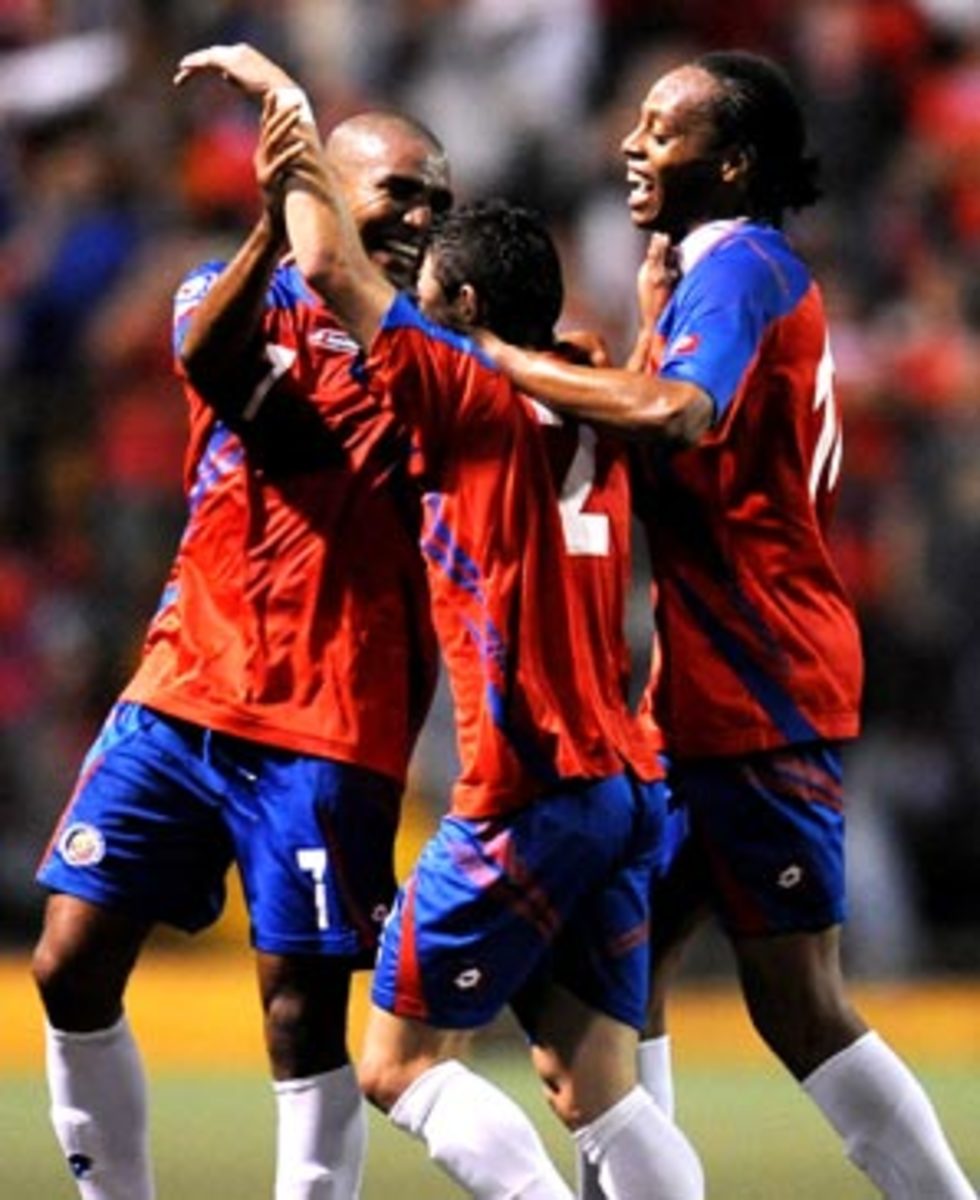Why the U.S. got crushed in Costa Rica
A crushing defeat in Costa Rica adds even greater importance to the next U.S. match in World Cup qualifying, against Honduras on Saturday in Chicago.
In Costa Rica on Wednesday, the Americans were second-best for most of the match in all areas of the field and could have lost by a greater margin. Kudos to coach Bob Bradley for taking a few chances and fielding an attacking lineup, ostensibly with three up top, but the 3-1 loss is precisely why caution in a forbidding environment -- not to mention being focused at the opening whistle -- is preferable.
Against a tough opponent on a quirky surface with an undermanned squad, the U.S. conceded goals by Alvaro Saborio and Celso Borges in the first 13 minutes. Aside from a brief push in the second half and a stoppage-time penalty kick by Landon Donovan, the Americans got smacked around, plain and simple.
A third goal, scored by substitute right back Pablo Herrera, of all people, in the 69th minute effectively ended the contest. For the second straight away match, mirroring a poor first half in El Salvador nine weeks ago, a sluggish U.S. fell behind early; unlike its rally on that occasion, the U.S. on Wednesday lacked the intensity and ideas required to turn around a two-goal deficit.
Costa Rica, playing in a pressing, aggressive 4-4-2 formation, repeatedly overran the three-man U.S. midfield of Pablo Mastroeni, Michael Bradley and Jose Francisco Torres, which enabled the hosts to attack the Americans on the corners. All three Costa Rican goals resulted from errors and breakdowns on the flanks, and while several Americans obviously struggled to control balls skipping and bouncing on the notorious artificial turf at Saprissa Stadium, the ferocity and cohesion necessary for such a match seldom materialized.
Saborio stunned the Americans when he darted inside from the right flank and knifed between Mastroeni and Torres to swerve a spectacular left-footed shot into the top far corner 85 seconds after kickoff. Costa Rica had already breached that flank in the opening 30 seconds but whatever warning that should have sounded wasn't heeded.
Minutes later, a string of breakdowns on the opposite flank -- Mastroeni applied pressure in a bad spot, Marvell Wynne and Oguchi Onyewu failed to react properly -- opened up enough space for Esteban Sirias to run the ball inside and clip a cross that Borges, who timed his run from midfield perfectly, drove into the net with an impeccable first-time hit more than a foot off the ground.
Their sharp finishing delivered both of those goals, yet the Costa Ricans' swift, fluid movements and clean touches created the opportunities. Such elements were notably lacking in the U.S. offense, and the insertion of three attacking subs in the second half -- Sacha Kljestan, Freddy Adu and Charlie Davies -- improved the situation only slightly.
Another crisp move produced a third goal. Playmaker Walter Centeno, not nearly as prominent a factor as the score might suggest, pirouetted in the penalty area to play the ball wide on the right flank to Herrera, who glided past a sluggish Bradley into shooting range. When Carlos Bocanegra stood his ground rather than challenging, Herrera hit a roller to the near post that cleanly beat keeper Tim Howard.
Throughout this sequence, no American got within a yard of the ball or the player on it. Of the three goals conceded, the ease of this one defied belief. Whether fatigued or shell-shocked, the U.S. players were nothing more than bystanders.
On the rare occasions the Americans worked themselves and the ball into good attacking positions, too often balls were played not to feet, but into space, and usually scurried out of play. Jozy Altidore labored heroically up front, absorbing fouls and checking back to allow Clint Dempsey and Donovan to get into the attack. Donovan, though, couldn't get past that last tackler one-v-one to get a clear look at goal, and the two shots he did take came from long distance and zipped high. Dempsey rarely looked like a crafty, incisive forward capable of getting a much-needed goal.
The Americans' only goal came much too late. Onyewu drew a foul in the penalty area as Wynne launched a throw-in, and Donovan sent Costa Rican goalie Keylor Navas the wrong way to claim his 38th U.S. goal.
Michael Bradley and Kljestan picked up their second yellow cards of the Hexagonal and will sit out the match against Honduras. Bob Bradley and his players have just two days to regain the confidence and sharpness they will need to beat another good regional rival.






